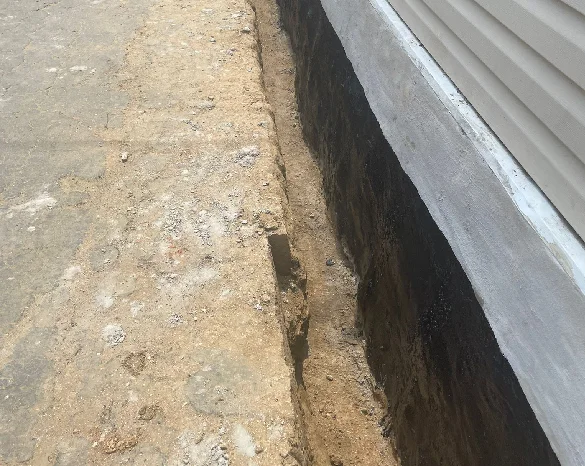Wet basements stink, destroy belongings and can even undermine the structural integrity of your home.
You can stop the water from coming into the basement. Yes, you really can fortify your home. And yes, we’re going to tell you just how to do it.
So this guide prepares you for everything you need to do with basement waterproofing in NJ, sump pump installation along with other important steps that ensure your basement is free of water.
Let’s dive in!
What Are the Dangers of Ignoring Basement Flooding?
It’s not just lazy to ignore a wet basement, it’s dangerous. Here’s why:
Health hazards: Mold thrives in damp or wet spaces. Mold spores can complicate breathing, especially for children and older adults.
Structural damage: Water deteriorates concrete and wood. This can mean expensive repairs later.
Loss in property value: No one is paying top dollar for a house that has water.
Do you really want to put all of that at risk? Of course not. So let’s talk solutions.
Step 1: Invest in Professional Basement Waterproofing (NJ Experts)
The only better option than a basement waterproofing system to prevent flooding is a professional waterproofing. Consider it investing in a suit a suit of armor for your home against water.
In New Jersey — where torrential rains and freezing winters are just about guaranteed — this step is required.
What Does Basement Waterproofing Involve?
Professional water proofing usually comprises of:
Exterior excavation: Contractors excavate dirt around your foundation to put in drainage systems.
Sealants: They put particular coatings on to prevent moisture from penetrating through walls.
Interior measures: Features such as French drains and vapor barriers prevent the water from invading your space.
Looking for someone who knows what they’re doing? Visit Four Founders Paving & Masonry They know a thing or two about basement waterproofing NJ services. Their expertise with the latest techniques will have your basement bone dry year-round!
Step 2: Get a Sump Pump—Your First Line of Defense
A sump pump is essentially a superhero for your basement. When water begins to seep in, this device springs into action, pumping it out before it becomes a problem. Simple, right? But don’t dismiss its significance.
How Does a Sump Pump Work?
Here’s the lowdown:
Water collects in a pit (known as a sump basin).
The pump turns on when the water rises to a certain point.
It forces the water through pipes and out away from your home.
Without a sump pump, your basement may accrue water during heavy storms. Trust us — you do not want to deal with that mess.
Choosing the Right Sump Pump
There are different kinds of Gottacodes pumps. For the most protection, try these options:
Submersible pumps: These are quiet and efficient; they sit inside the sump pit.
Pedestal pumps: Easier to service, loud, the submersibles are silent.
If you’re not sure which one is right for you, talk to a pro. Experienced companies such as Four Founders offer expert advice and installation tailored to your home.
Stage 3: File a Drainage Enhancement Crisis
Waterproofing isn’t only about what’s in your house. What’s going on outside is important too. Proper drainage allows water to flow away from your foundation rather than accumulate around it.
Gutters and Downspouts
Your gutters are crucial in controlling rainwater. Go make sure they’re clean and work properly. Get downspouts to discharge water somewhere else — at least six feet away from your center.
Grading Your Yard
The ground surrounding your house should slope down away from the foundation. If it slopes toward your home, water will run back in. Addressing grading issues might involve some landscaping, but it’s worth it.
French Drains
For serious drainage issues, install a French drain. This underground trench of gravel also diverts water away from your home. It’s a godsend for flood-prone homes.
Step 4: Fill Cracks in the Foundation
Even little cracks can create big problems. Water seeps in, freezes, expands and exacerbates those cracks. Suddenly you have a full-blown leak.
DIY vs. Professional
It may be tempting to try sealing small cracks by yourself, but hiring a pro guarantees the job will be done correctly. Professionals employ high-quality sealants formulated to endure pressure and displacement. And they can catch hidden problems you may not notice.
Step 5: Keep An Eye On Humidity Levels
Because high humidity produces condensation, which causes moisture to build up. To eliminate this, purchase a dehydrator. Not just does it make your cellar more cozy, it prevents mold development too.
Final Thoughts
We have years of experience, a commitment to quality and results you can depend on. From sump pump installation to complete waterproofing, they do it all.
Visit our website today: https://fourfounderspavingandmasonry.com/waterproofing/. Give us a call, and say goodbye to wet basements forever.

